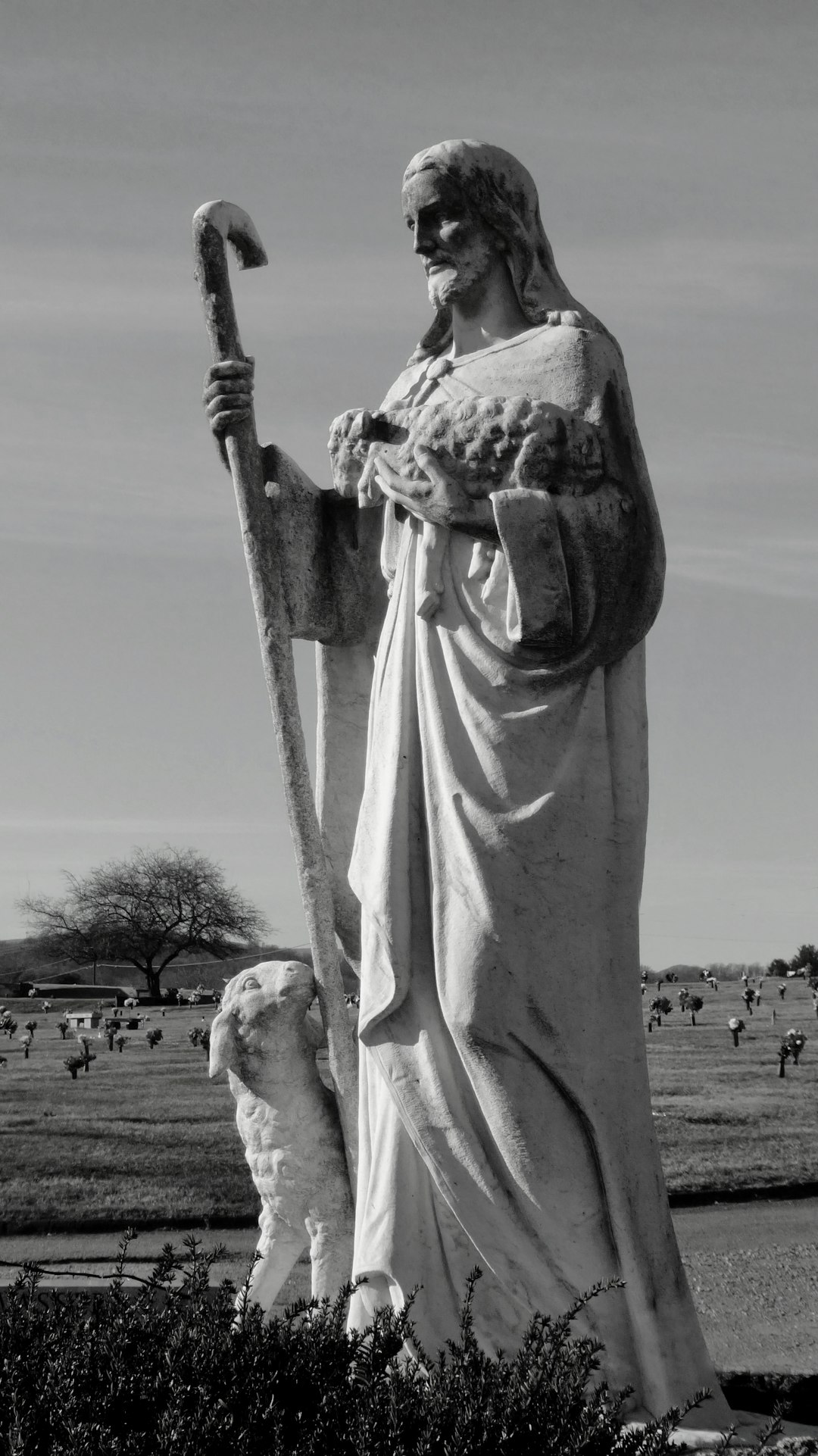1 Peter 5 Part 1: Shepherding the Flock
1 Peter 5:1-4 Elders should shepherd the Flock of God with humility, eagerness and by being an example.

“Therefore, I exhort the elders among you, as your fellow elder and witness of the sufferings of Christ, and a partaker also of the glory that is to be revealed, shepherd the flock of God among you, exercising oversight not under compulsion, but voluntarily, according to the will of God; and not for sordid gain, but with eagerness; nor yet as Lording it over those allotted to your charge, but proving to be examples to the flock. And when the Chief Shepherd appears, you will receive the unfading crown of glory.”
1 Peter 5:1-4 NASB1995
A bunny trail first:
Before diving into the final chapter of 1 Peter, I wanted to say a few words about my intent in writing these devotionals. Earlier today (7/28) I read a comment on a Christian social media site that took issue with the idea of sanctification, which made me think of our purposes here at Heaven on Wheels. In essence, here is what the comment said:
Sanctification is declared by God at conversion. It is not progressive; progressive sanctification is backdoor legalism. It is not in the Bible nor was it understood by the original readers or writers of the Bible.
This comment, which was the subject of many appropriately negative responses, shows a profound lack of understanding of the Gospel and other NT books and the concepts of justification (I believe), sanctification (I respond and am purified with the help of the Holy Spirit throughout my life), and glorification (I am complete and crowned in eternal life in the presence and worship of our Lord). What I am usually writing about in most, if not all, of my devotionals is the entire process of MY sanctification through analyses of scripture that I share with readers, which is not “back door legalism”.
In our faith journey, both Steve and I have learned a lot about discipleship, which have resulted in OUR behavioral changes and an unsteady, but growing, retreat from sinful behaviors. If you stop your faith journey at conversion and say “it’s good” and call everything after that legalism, then that would explain why some readers have walked away from our site when we call into question all sorts of current cultural “norms” as being sinful and against the word of God. We lost another subscriber today (7/28) as I write this, the day after Steve published his devotional about whether or not to see the movie “Oppenheimer”.
Our intent is not to shame others (each person has their own faith journey and decisions to make), but to bring forward what anyone could learn, like we are learning, if they are serious about sanctification. “Comfort” can be found in the pews of most mainstream churches that are doing more to reconcile with culture and embrace universalism than teach the Word of God, which is why they are closing their doors at record rates. Christianity is not one bit comfortable, but very challenging. A narrow path, indeed…
Now, back to the program…
1 Peter 5 begins with an exhortation to the elders of the church from him as a fellow elder and witness to the sufferings of Christ and also a partaker of the glory that is to be revealed. I found some great commentary, as usual, in Enduring Word about elders and Peter’s witness (links go to Blue Letter Bible):
The elders who are among you I exhort: Peter will give a word of exhortation to the elders who are among the Christians reading this letter. These elders had special responsibilities that Peter addressed.
The idea of the elder came into church life from Jewish culture (Exodus 3:16, 12:21, and 19:7). The word “elder” simply speaks of the maturity and wisdom that an older person should have, making them qualified for leadership. In its application, it is more about wisdom and maturity than a specific age.
It was the practice of Paul and Barnabas to appoint elders in the churches they had founded (Acts 14:23). There was also the development of the office of pastor, who was essentially a teaching elder (1 Timothy 5:17) who appointed and guided elders and other leaders (1 Timothy 3:1-13, 2 Timothy 2:2, Titus 1:5-9).
I who am a fellow elder: Peter was qualified to speak because he is a fellow elder. Though Peter was clearly the prominent disciple among the twelve, he claimed no special privilege or position, such as being the pope of the early church. Instead, Peter saw himself only as one fellow elder among all the elders in the church.
“It will always be our wisdom, dear friends, to put ourselves as much as we can into the position of those whom we address. It is a pity for anyone ever to seem to preach down to people; it is always better to be as nearly as possible on the same level as they are.” (Charles Spurgeon)
A witness of the sufferings of Christ, and also a partaker of the glory that will be revealed: Peter was qualified to speak because he was a witness of Jesus’ sufferings when he saw Jesus’ torture and perhaps the crucifixion. He was also a partaker of Jesus’ glory, probably referring to when he saw the transfiguration of Jesus.
“He was with Christ in the garden, he was with him when he was apprehended, and he was with him in the high priest’s hall. Whether he followed him to the cross we know not.” (Adam Clarke)
“The gospels do not state that Peter was personally present at the crucifixion; only John is specifically said to have been there. Peter (and other apostles) may well have been among ‘all his acquaintances’ who observed the event from afar (Luke 23:49).” (D. Edmond Hiebert)
Considering that Peter may have – or likely did – witness the sufferings of Jesus on the cross, the remembrance of that would make his exhortation to fellow elders all the more powerful. It would be as if he said, “You are leaders of the people for whom Jesus Christ suffered and died, and I saw Him suffer.”
Yet we also consider that many saw Jesus suffer, and it did not affect them the way it affected Peter and others who saw with faith. “There were thousands who were eyewitnesses of our Lord’s sufferings who, nevertheless, saw not the true meaning of them. They saw the Great Sufferer besmeared with his own blood; but into his wounds they never looked by faith. Thousands saw the Savior die, but they simply went their way back to Jerusalem, some of them beating on their breasts, but none of them believing in him, or really knowing the secret of that wondrous death.” (Charles Spurgeon)
Charles Spurgeon has a fascinating commentary on the suffering of Jesus, that many witnessed it and it did not affect them in the same way that it affected those who had faith in Him. Some of the witnesses cheered the suffering and jeered at the victim (the debased behavior of humans never surprises me with how low it can go). Peter may very well have also been “in the crowd” that day. If he was not, then he certainly saw the transfigured Lord, still with the marks of the crucifixion, right after the Resurrection and looked into His eyes. And Peter knew that he was personally responsible for some of that suffering by denying that he knew Jesus.

Peter also exhorts the elders to provide oversight without compulsion, without sordid gain, to be eager, to not Lord it over them, and to be an example to the flock. The sheep are entrusted to them by the Savior. Precept Austin has some good words about “sordid gain” (links go to Biblia.com for the scripture references)
The shepherd must serve the Lord with a willing heart because he loves Christ and the flock, and not simply because he has a job to do. He must never serve for “sordid gain”, whether it be money, prestige, power, or promotion.
False teachers are usually motivated by greed and desire for money, and use their power and position to rob people of their own wealth. A desire for filthy lucre must never be a motive for Shepherds. (cf. 1Ti 3:3; 6:9, 10, 11; 2Ti 2:4; Titus1:7; 2Pe 2:3; also Je 6:13; 8:10; Mic 3:11; Mal 1:10).
This does not prohibit the elder from receiving a fair return for honest toil. Peter, like Paul, accepted the ordinance of Christ that “the laborer is worthy of his wages” (Lk 10:7; 1Ti 5:18). But Peter is warning against taking up the work because of a desire for material gain, “it being a shameful thing for a shepherd to feed the sheep out of love to the fleece.”
To enter the ministry simply because it offers a respectable and intellectually stimulating way of gaining a livelihood is to prostitute that sacred work. This warning also includes the temptation to use the work of the ministry to gain personal popularity or social influence. When a love for gain reigns, the shepherds are prone to become mere hirelings, feeding themselves at the expense of the flock.
We just finished a very interesting and lengthy on-line course on evangelism that we enrolled in from the Billy Graham Evangelistic Association. A lot of the training is focused at what the late Reverend Graham called “itinerant” evangelists, who are often pastors, elders and leaders in churches, but can also be lay people. The training hammered home the point over and over again that the evangelist must be honest, humble, eager, righteous (not self-righteous), avoid sinful situations, and not be in the profession for personal gain. Billy Graham was known and loved around the world for his crusades and his preaching/evangelizing and was entertained and sought after by world leaders, but he always maintained his humility and lived rather simply. He made most of his money from writing, not from his free crusades and also gave most of it away.
Arrogance has no place among those who lead a flock of Christian believers. They are not celebrities and they cannot promise prosperity to followers. The role model is Jesus and any leadership that does not try to resemble Him is off-kilter. I know from personal experience that presenting information to crowds and getting a positive reaction is ego-boosting. I would hope and pray that I can be humble and eager in how I present scripture now and not be overbearing. I am but a novice and beginner on the learning curve as I work through sanctification.
If these precepts from Peter are followed, the elders can expect an unfailing crown of glory when the Chief Shepherd appears to them. What more could we want than to hear Jesus tell us we have done well and been faithful?
My next devotional examines 1 Peter 5:5 Humility of the Younger People.
Heaven on Wheels Daily Prayer:
Dear Lord - Please help to refine my research and writing to help readers understand your Word and the journey of Sanctification. Please help me to be humble and eager to shepherd a tiny flock of people who are interested in learning along with me. Thank you for guiding me through my discipleship, which is reinforced when I study your Scripture. Amen.
Scripture quotations taken from the (NASB®) New American Standard Bible®, Copyright © 1960, 1971, 1977, 1995 by The Lockman Foundation. Used by permission. All rights reserved. lockman.org
Commentary from Enduring Word by David Guzik is used with written permission.


